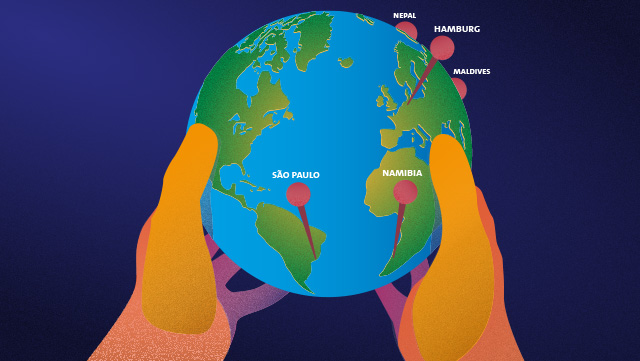Hamburg Climate Futures Outlook 2024
Many countries, communities, and social actors around the world are struggling to cope with the impacts of climate change. Adapting to climate change in a sustainable manner involves a huge collective effort and is barely happening. How can sustainable climate change adaptation become plausible? The Hamburg Climate Futures Outlook 2024 provides a unique systematic and global assessment of the context conditions for sustainable climate change adaptation, evaluating the social dynamics of deep decarbonization and the physical dynamics in regional climate variability and extremes. Through nine case studies across the globe, the assessment provides insights into key barriers and opportunities for sustainable climate change adaptation.
- Download (the study as accessible PDF and as ePub)
- Key Findings
- Case Studies Summary
- Figures (as jpeg/png files)
- Fact Sheets
- Authors
- Contact
Related Work:
Book review in Journal of Environmental Studies and Sciences (6/2025): Hamburg climate futures outlook 2024: conditions for sustainable climate change adaptation
Buying time or building futures? Conditions for sustainable climate change adaptation (2025); Wilkens J, Engels A, Gonçalves Gresse E, López-Rivera A, Marotzke J, Pagnone A, Ratter B; Environmental Research Letters, 20/7
Key Findings in a nutshell
Reaching net-zero CO2 emissions by 2050 is currently not plausible. Especially corporate responses, consumption trends, and the lack of effective fossil-fuel divestment inhibit deep decarbonization.
Many social drivers support decarbonization, but lack a decisive turning point.
Long-term climate change and internal climate variability together can lead to ecosystem and socioeconomic disruptions with potentially devastating consequences.
Sustainable and climate change adaptation is urgent. But so far, coping and incremental responses predominate.
A more inclusive and connected repertoire of climate action is needed:
- Work across sectors and scales to improve preparedness for the impacts of climate change.
- Integrate diverse knowledges for just climate action.
- Use political, legal, and financial pressure to phase out fossil fuels.

